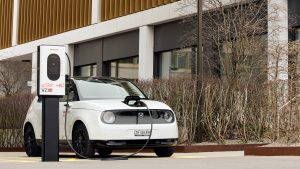Artificial intelligence is considered the technology of the future. Can it also support cities? A white paper from UN-Habitat and Mila highlights the opportunities and risks.
UN-Habitat is a United Nations organization that promotes sustainable urbanization. As it moves toward the smart city, artificial intelligence (AI) will play a central role in the city of the future.
AI offers opportunities for urban development, but also poses risks: “AI, like any other technology, can be a force that widens or narrows social divides, depending on how it is applied,” says Maimunah Mohd Sharif, executive director of UN-Habitat.
Together with Mila, the world’s largest academic deep-learning research center, UN-Habitat has been studying the pros and cons of AI in an urban context. The result of the collaboration is the “AI & Cities” whitepaper, which aims to help cities deal with AI.
The whitepaper offers a set of practical recommendations on how AI can be used to promote sustainability and inclusive communities in cities. The document focuses on a variety of urban utility sectors, including energy, mobility, public safety, and healthcare.
Download the white paper from UN-Habitat and Mila:
AI & Cities: Risks, Applications and Governance.





